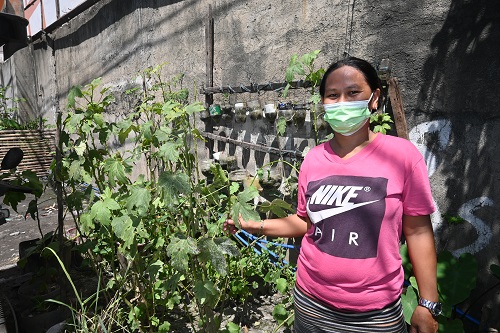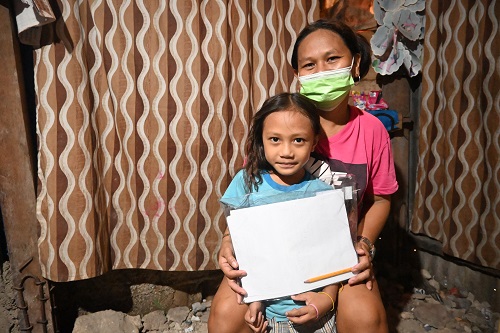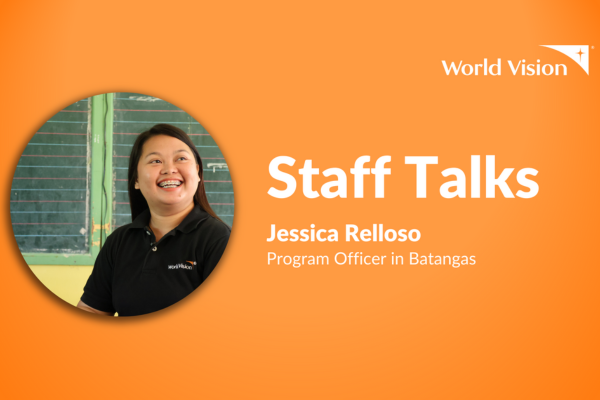Mother no longer worries about feeding her eight kids during a pandemic

Lorena and her family live in a highly urbanized community in the province of Cebu. When COVID-19 started, the area was one of the areas in the Philippines that implemented a stricter lockdown measure. Her family struggled to cope with the new realities, especially in their food source.
Lorena’s husband, Danilo, worked as a driver in a private company before the pandemic happened. His job. Including their eldest son’s work was one of the thousands of livelihoods that were affected. They had nothing to earn from. It was a hard time for them.
“Food supply was really scarce during the start of the pandemic. Imagine I had to feed my eight children, and we didn’t have any money to buy our daily meals,” shares the 44-year-old mother.
Eventually, the government responded by giving food and cash aid. Most of what they received consisted of instant noodles, canned goods, and rice. Lorena was worried about her children’s nutrition because they didn’t have much to buy vegetables, fruits, and meat, which prices also skyrocketed during the quarantine period.
In the middle of the pandemic, World Vision addressed the needs of the families affected by the crisis. One of its projects is the Urban Development Project (UDP) which supports vulnerable children in Urban Poor communities.
Lorena’s family was selected as a beneficiary of the project’s urban gardening activity. The mother was trained on how to grow vegetable plants in an urban setting. Along with their learning, she also received a variety of vegetable seeds.
“After successfully growing the plants, we already have enough healthy food supply every day. We can also save money from buying in the market,” she shares.
The mother also joined a community savings group named CoMSCA as part of UDP’s livelihood support. She can save money along with her neighbors, and she can borrow money for necessary use.
“CoMSCA is really helpful for my family during this time of need. I borrowed money worth P2,500 and invested it in dried fish which I sell around the neighborhood. It helps me earn income for my family’s needs,” says Lorena.
In the past months, the quarantine restrictions have also eased after a lesser COVID-19 rate. Danilo and their eldest have already returned from their work.
Lorena and her family are slowly getting back from their feet, and they owe a part of their recovery from World Vision’s support. She hopes that her invested livelihood from the CoMSCA saving and her vegetable garden will sustain a lasting impact.

Lorena also joined a community saving organized by World Vision’s Urban Development Project. She was able to save enough money with other members and she can already borrow to buy for her family’s needs. She bought school supplies for her daughter’s schooling.








